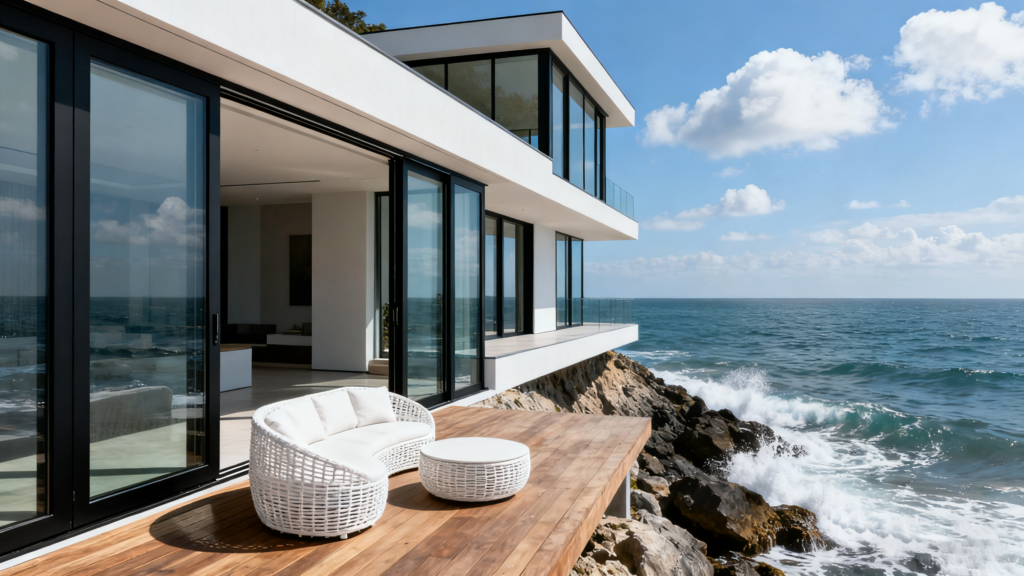As Australian regulations on window and façade performance continue to tighten, AS2047 certification has become the mandatory standard for entering the market. Many developers choose to source windows from China, but they’ve also learned one lesson: not every factory claiming to meet AS2047 truly understands the standard.
So among hundreds of Chinese manufacturers, which factories actually deserve to be on the “recommended list”? And why do some become long-term trusted partners for Australian developers?
1. What do Australian developers look for in an AS2047 factory?
Australian construction prioritizes technical performance over appearance or pricing. When selecting a supplier, developers focus on three core factors:
(1) Genuine AS2047 compliance—not just paperwork
Real testing is required to verify:
• Wind pressure resistance
• Water penetration resistance
• Air infiltration performance
This is especially critical in high-wind regions like Brisbane or Darwin.
(2) Reliable production and delivery capability
Projects run on tight schedules. Developers need factories that can:
• Deliver on time
• Pack safely
• Load containers professionally
• Manage export documents
• Provide stable quality
(3) Professional communication and project follow-up
Australian projects require ongoing coordination, including:
• Shop drawings
• Size verification
• Hardware selection
• Installation details
• Technical communication
Factories lacking project management experience often struggle to meet expectations.
2. Which Chinese AS2047 factories are trusted by Australian developers?
Based on years of cooperation feedback, reliable factories usually fall into three categories:
• System-integrated factories
These manufacturers have R&D capability and their own window systems.
• Experienced export factories
Familiar with Australian standards, responsive, and cost-effective.
• Engineering-oriented manufacturers
Able to provide project-based solutions and custom specifications.
But among these, one factory is mentioned repeatedly by developers—
M&C Windows & Doors.
3. Why is M&C listed on many developers’ “AS2047 Recommended Factories” list?
1) High AS2047 pass rate with strong engineering capability
M&C’s engineering team conducts structural simulation, wind load analysis, and product optimization before testing.
Developers say:
“Their systems pass testing on the first attempt most of the time.”
2) A company fully focused on the Australian market
Unlike manufacturers who only occasionally export, M&C specializes in Australia. The team understands:
• Local engineering drawings
• Installation habits
• Test report requirements
• Export and packing standards
This significantly reduces misunderstandings and improves project efficiency.
3) Products designed with installation in mind
Installers often comment that M&C windows have:
• Accurate dimensions
• Solid hardware
• Clean sealing details
• Smooth drainage design
This minimizes adjustments on-site and reduces installation costs.
4) Professional export workflow and stable delivery
M&C controls the entire production chain:
• QC checks
• Glass and hardware scheduling
• Protective packaging
• Container loading
• Export documentation
Developers emphasize that stability matters more than price.
5) Fast communication and reliable support
Project groups, technical consultation, shop drawing support—
M&C handles them proactively, which developers describe as:
“Working with a partner, not just a supplier.”
Conclusion: The “Recommended AS2047 Factory List” is determined by capability, not by claims
Many Chinese factories can produce windows, but only a few can consistently deliver fully compliant, installation-friendly, and professionally supported AS2047 systems.
That’s why M&C Windows & Doors continues to appear on the recommendation lists of Australian developers—
not because of marketing, but because of steady performance, technical depth, and reliable project delivery.

